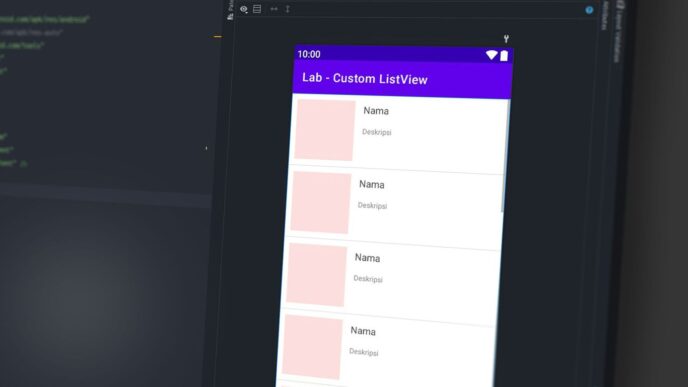New York City is buzzing with tech innovation, and the Software as a Service (SaaS) scene is no exception. In 2025, the city continues to be a hotbed for companies building the tools that businesses rely on every day. We’ve rounded up some of the top SaaS companies in NYC that are making a real impact. It’s a dynamic space, with new players emerging and established ones growing fast. Let’s take a look at who’s leading the pack.
Key Takeaways
- MongoDB is a major player in the database-as-a-service space, helping developers build apps with its cloud platform.
- Zeta Global offers a marketing and CRM platform that uses data to help brands connect with customers across different digital channels.
- Ramp provides tools for managing company spending, including corporate cards and expense tracking, simplifying financial operations.
- Datadog is known for its monitoring and analytics platform for cloud applications, helping businesses keep their systems running smoothly.
- DigitalOcean offers cloud infrastructure services, making it easier for developers and businesses to build and scale applications online.
1. MongoDB
MongoDB, founded back in 2007, is a big name in the database world, and it’s right here in NYC. They’re basically the go-to for a cloud-based database service. Think of it as a super flexible way to store and manage all sorts of data for your apps, whether they’re for phones or the web.
What makes them stand out is their distributed infrastructure. Instead of relying on one giant, expensive machine, they use a bunch of regular servers working together. This approach makes their platform pretty robust and scalable. Developers seem to really like it because it helps them build things faster without getting bogged down by database headaches.
Some of the cool features they offer include:
- Data Visualization: Making sense of your data by showing it in charts and graphs.
- Vector Search: A newer way to search for information, especially useful for AI applications.
- Stream Processing: Handling data that comes in continuously, like live updates.
- Cluster Distribution: Spreading the data across different servers for better performance and reliability.
MongoDB has become a foundational tool for many modern applications. They’ve grown a lot since they started, and they’re now a public company, showing just how much demand there is for their kind of service. It’s pretty impressive how they’ve managed to stay at the top of the game for so long in such a competitive field.
2. Zeta Global
Zeta Global is a big player in the marketing tech scene, operating out of New York City. They focus on helping brands connect with their customers in a more meaningful way, using data to make marketing efforts smarter. Think of them as the folks who help companies figure out who to talk to, when to talk to them, and what to say, across all sorts of digital channels.
Their platform pulls together a lot of different data points to create a clearer picture of consumers. This allows businesses to tailor their messages, whether it’s through email, social media, or online ads. It’s all about making marketing less of a shot in the dark and more of a targeted conversation.
Here’s a look at what Zeta Global brings to the table:
- Omnichannel Marketing: They cover a wide range of digital touchpoints, so brands can reach customers wherever they are online.
- Data-Driven Insights: Using their proprietary technology, they analyze consumer behavior to provide actionable intelligence.
- Customer Engagement & Retention: The ultimate goal is to help brands build stronger relationships with their customers, keeping them coming back.
Companies like BMW, Audi, and Samsung have used Zeta Global’s services. It shows they’re working with some pretty major brands that need to get their marketing right. In the crowded world of digital advertising, Zeta Global aims to cut through the noise by making things more personal and effective.
3. Ramp
Ramp is shaking things up in the corporate finance world, and honestly, it’s about time. They’ve built a platform that really tries to simplify how businesses handle their money, especially when it comes to spending. Think of it as a smart way to manage company cards, track expenses, and keep an eye on budgets, all in one place.
What’s cool is how they integrate everything. You get company cards, expense reports that don’t require a mountain of paperwork, and tools to help you stick to your spending limits. It’s designed to cut down on all those manual tasks that finance teams usually dread. Plus, they’ve expanded into travel and procurement, so it’s becoming a more complete solution for businesses looking to get a handle on their finances. It’s no wonder they’ve seen such significant investment, reaching a valuation of $22.5 billion recently.
Ramp’s approach focuses on a few key areas:
- Streamlined Expense Management: Forget endless spreadsheets and lost receipts. Ramp makes it easier to submit, approve, and track expenses.
- Smart Corporate Cards: Get physical and virtual cards for your team, with spending controls built right in.
- Budgeting and Insights: See where your money is going with clear dashboards and reporting.
- Procurement Tools: Manage purchasing and vendor payments more efficiently.
Founded in 2019, Ramp is a relatively young company, but it’s made a big splash. They’re based right here in New York City and are clearly focused on making financial operations less of a headache for growing companies. It’s a platform that aims to give businesses better control and visibility over their spending, which is pretty important for any company trying to grow smart.
4. Datadog
Datadog is a big name in the tech scene, especially for folks working with IT and DevOps. Basically, they offer a service that lets you keep an eye on your cloud systems. Think of it like a dashboard for all your servers, applications, and logs. It helps you see what’s going on, catch problems before they get serious, and figure out why things might be slow.
Founded back in 2010, Datadog has grown quite a bit. They’re headquartered right here in New York City, which is pretty cool. Their platform is designed to give teams a unified view of their entire tech stack, from the infrastructure up to the application layer. This means you don’t have to jump between a bunch of different tools to get the full picture.
What can you actually do with Datadog?
- Monitor Performance: Keep tabs on how your applications and infrastructure are running. See CPU usage, memory, network traffic, and all that jazz.
- Track Errors: When something goes wrong, Datadog helps you pinpoint the exact error and where it’s happening.
- Analyze Logs: Sift through all the messages your systems are generating to find clues or troubleshoot issues.
- Visualize Data: They have dashboards where you can see all this information presented in charts and graphs, making it easier to understand trends.
They also provide tools for things like database monitoring and even security monitoring. It’s a pretty comprehensive suite for anyone managing complex cloud environments.
5. DigitalOcean
DigitalOcean is a big name in the cloud computing space, especially for developers who need straightforward tools to build and scale their applications. They’ve really carved out a niche by focusing on simplicity and ease of use, which is a breath of fresh air compared to some of the more complex cloud providers out there. Think of them as the go-to for virtual machines, managed databases, and all sorts of developer-friendly services.
Founded back in 2011, DigitalOcean has grown quite a bit, becoming a public company and establishing itself as a reliable platform. They offer a range of products designed to help businesses, from small startups to larger enterprises, manage their infrastructure without needing a massive IT department. This includes things like:
- Droplets: Their core virtual private servers, available in various configurations.
- Managed Databases: Services for PostgreSQL, MySQL, and Redis, taking the hassle out of database management.
- Kubernetes: Tools to deploy and manage containerized applications.
- App Platform: A fully managed service for building and deploying web applications.
Recently, they’ve even expanded their storage solutions with a new, fully managed Network File System (NFS) service, which is a pretty neat addition for those needing robust file storage capabilities. Their commitment to providing accessible cloud infrastructure makes them a standout player in the NYC tech scene. It’s this focus on the developer experience that really sets them apart.
6. Alarm.com

Alarm.com is a company that really focuses on making homes and properties safer through technology. They’ve been around since 2000 and are based out of Tysons, Virginia, but their reach is much wider.
What they do is provide cloud-based security systems. Think of it as a smart way to keep an eye on things. Their platform connects various devices like video cameras, door and window sensors, and even smart home gadgets like thermostats and lights. This means you can manage your home’s security and comfort all from your phone. It’s pretty neat how they use cellular networks to make sure the system stays connected, even if your internet goes down. They’re a big player in the proptech space, offering a solid solution for homeowners looking for integrated security and home management. It’s interesting to see how companies like Alarm.com are shaping the future of home safety and convenience, contributing to the vibrant ecosystem of SaaS companies in NYC and beyond.
7. Aryeo
Aryeo is a company that’s making waves in the real estate tech world, specifically with how agents handle all their property photos and videos. Think of it as a central place for everything visual related to a listing. They started up in 2019 and have been building out their software to help real estate pros manage, share, and organize all their property images and videos.
They’re basically trying to make the whole process of dealing with listing photos and videos much simpler for agents.
Here’s a quick look at what they do:
- Content Hub: It’s a place to store all your property photos, videos, virtual tours, and even floor plans. No more hunting through different folders or cloud drives.
- Easy Sharing: Agents can quickly share this visual content with potential buyers or other agents. They’ve got tools to make sure the right people get the right files without a hassle.
- Organization: The platform helps keep everything tidy. You can tag photos, sort them by room, or link them to specific properties, which is pretty handy when you’ve got a lot of listings going at once.
While they’re not the biggest player out there yet, Aryeo has managed to get some funding, around $3.5 million, to keep growing. They’re focused on making the visual side of real estate marketing less of a headache for agents and brokerages.
8. Briq

Briq is a company that’s really making waves in the real estate and construction world. Founded back in 2018, they’ve seen a huge jump in people searching for them, which tells you something, right? They’re focused on helping real estate and construction pros get a better handle on their budgets and investments.
Think about it – managing money on big projects can get complicated fast. Briq offers a SaaS platform designed to simplify all that. They have this cool feature called predictive analytics. Basically, it lets you play around with different scenarios to see how they might affect your ongoing projects. This kind of foresight can help you avoid nasty surprises and keep things running smoothly.
Here’s a quick look at what they offer:
- Budget Management: Tools to keep your project finances in check.
- Investment Tracking: Ways to monitor where your money is going and its potential return.
- Predictive Analytics: Simulating project outcomes based on various factors.
- Streamlined Workflows: Making the financial side of construction less of a headache.
While they started in Santa Barbara, their impact is being felt more broadly. They’ve secured a decent amount of funding, which shows investors are seeing the potential in what they’re building. It’s all about giving project managers and CFOs the data they need to make smarter decisions.
9. Casavo
Casavo is a company that’s trying to make buying and selling homes a lot less of a headache. Based in Milan, Italy, they started up in 2017 and have managed to raise about $10.6 million.
Their main goal is to speed up real estate transactions and make them simpler for everyone involved.
Here’s how they do it:
- For Sellers: Casavo offers a guaranteed price for your property. You accept the offer, and they handle the rest. This means no more waiting around for potential buyers or dealing with endless negotiations.
- Fast Closing: Once you agree to their offer, Casavo aims to pay you quickly and close the deal within a month. This is a big change from the usual drawn-out process.
- Simplified Process: By taking on the complexities, Casavo provides a smoother experience, cutting out a lot of the uncertainty that often comes with selling a home.
10. Cherre
Cherre is a New York-based company that’s really changing how people in real estate handle information. They started back in 2016 and have built a platform focused on making property and market data easy to access and understand.
Their main goal is to be the go-to place for accurate real estate data, cutting down on the time and effort people spend gathering and analyzing it. This means professionals can look at potential deals or market shifts much faster and with more confidence. It’s all about giving decision-makers a clear picture so they can make smarter moves.
Cherre tackles a big problem in the real estate world: messy, scattered data. By bringing everything together into one spot, they help users avoid the headaches of manual data collection and reduce the costs associated with analysis. Think of it as a central library for all things real estate data, making it simpler to find what you need.
Here’s a quick look at what they do:
- Data Consolidation: Gathers property and market information from various sources.
- Analytics Tools: Provides ways to analyze this data to spot trends and opportunities.
- Decision Support: Helps users make more informed choices about real estate investments and strategies.
Wrapping It Up
So, that’s a look at some of the big players in New York City’s SaaS scene for 2025. It’s pretty wild how many companies are popping up here, with a bunch of new ones starting every year. We’ve seen how these companies, from database wizards like MongoDB to marketing gurus like Zeta Global, are really changing how businesses work. It’s clear the SaaS world isn’t slowing down, and NYC is definitely a major hub for all this innovation. Keep an eye on this space, because things are only going to get more interesting.
Frequently Asked Questions
What exactly is SaaS and why is it so popular?
SaaS stands for Software as a Service. Think of it like renting software instead of buying it. You access it online, usually through a subscription. It’s popular because it’s flexible, often cheaper upfront, and you don’t have to worry about installing or updating it yourself. Companies like MongoDB and Datadog offer these kinds of services.
How many SaaS companies are there in NYC?
New York City is a huge hub for SaaS! There are over 5,000 SaaS startups here. Many of them are doing really well, with some even becoming ‘unicorns’ – companies worth over a billion dollars.
What’s new in the SaaS world for 2025?
Get ready for more smart tools! In 2025, Artificial Intelligence (AI) is becoming a super important part of SaaS. Companies are using AI to make better decisions, work more efficiently, and offer personalized experiences to customers. Think of it like having a super-smart assistant for your business.
How important is data for SaaS companies?
Data is like the fuel for SaaS companies, especially with AI. Good, clean data helps these companies understand customers better, make smarter choices, and create better products. Companies that manage their data well are the ones that really succeed.
Are there specific types of SaaS companies in NYC?
Yes, absolutely! While many companies offer general business software, there’s a big focus on specific areas. For example, companies like Alarm.com, Aryeo, and Cherre are making big moves in the real estate technology (PropTech) space, using SaaS to make buying, selling, and managing properties easier.
What makes a SaaS company successful?
Success in SaaS often comes down to a few things. Companies that offer solutions to real problems, adapt to new technology like AI, focus on good customer service, and have a solid plan for managing their data tend to do the best. It’s also about staying innovative and meeting the changing needs of businesses.












